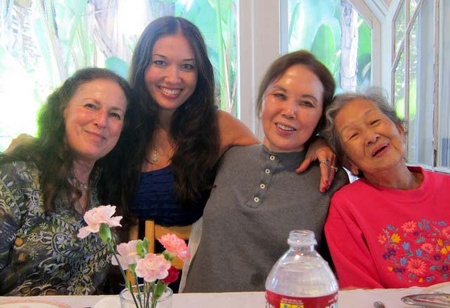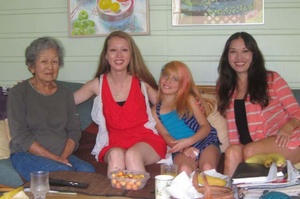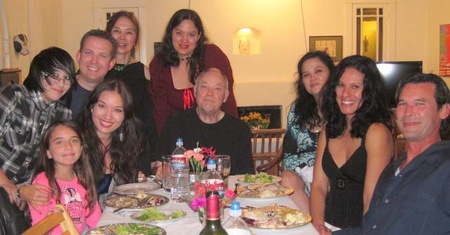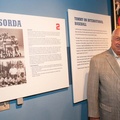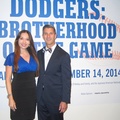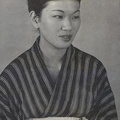It’s that special time of the year again when my family will gather around the menorah while simultaneously being reminded to take off our shoes and yelled at to start the rice.
Yes, it’s the only kind of holiday I have ever known, a merry Bewish festive season, a word made up for a combination of both my parents who are Buddhist and Jewish.
Let’s just say that I grew up thinking that while Jesus was a suffering member of my tribe I was not supposed to worship; Buddha taught us that “Life as we know it ultimately leads to suffering.” You see, I couldn’t win.
So, with the presence of a confused identity, I also experienced the joy of giving and receiving double the presents from both sides of my family for eight days of Hanukah and one blessed day of Christmas. And once again, I will have a lot of re-gifting to do.
As a kid, Christmas was about getting the big doll of the season or the Schwinn bicycle, and dining Japanese-Jewish style with fried fish and musubi alongside a not very Kosher Honey-baked ham and some healthy borsht.
There were no mangers, plastic Jesus nightlights or crosses decorating our home. Instead we had Japanese Kabuki Theater masks arranged loosely near books by Chekov while we watched Woody Allen’s Take the Money and Run or T.S. Elliot’s chipper Murder in the Cathedral during a Christmas feast.
And there was no Hanukah actually celebrated, except if you count eating at Hollywood Cantor’s Deli with Jewish star sightings while eating pastrami on rye.
Milton Berle observed, “Anytime a person goes into a delicatessen and orders a pastrami on white bread, somewhere a Jew dies.”
My life experience can be summed up in the following quote, “Let your mind be as a floating cloud. Let your stillness be as the wooded glen. And sit up straight. You’ll never meet the Buddha with posture like that.”
“Oy Vey,” I say, as I am now married to a Jew who sits next to my Japanese mother at Christmas meals, and next to his own mother at Hanukah. What can I say? They both love the mensch.
Anne Bancroft said, “When Mel Brookes told his Jewish mother he was marrying an Italian girl, she said, ‘Bring her over, I’ll be in the kitchen with my head in the oven.’”
I have officially earned the title of Double-Jap as my father used to call me; as well as the esteemed title of Shikseh princess with now, two mothers who always knows what food is the best. Don’t even get me started.
My mother in law makes the best potato latkes West of Queens, while my Japanese mother knows how to sauté a sassy Sukiyaki any Asian parent would approve of.
The great thing about being from such a diverse background during holidays is the sheer entertainment and material alone.
For example, I remember one year we used menorah candles that were shoved into a kitchen junk drawer for my husband’s birthday, while I made him “blow quickly” so I could save them for Hanukah the following month. You understand, these were my “good” candles, not the cheap ones from Menorahs R’ Us.
Then there are memories of decorating Christmas trees with clumps of tinsel; buy one, get two for free at the Jewish grocery store in the Palisades, while my father just laughed at us while drinking a martini’s and singing along to Dean Martin.
This year I feel a little less high on the weird scale as Barack Obama is our president elect.
Like me, he is a half-breed from parents of different cultures and faiths who was expected to get a long.
He was also asked during his presidential run what he considered his ethnic identity to be. Being the wise man he is, he answered thoughtfully that he is simply an American from two rich cultures.
Everyone has their own strange family holiday stories to tell, and that is one of the things that unites us together as Americans…and humans…that we all have the odd relative, weird tradition or holiday ritual we secretly enjoy and covet.
For me, this includes the fact that I have begun yet a second generation of being a part of a Jewish- Japanese marriage wherein we have reversed cultural identities with one another.
Let’s just say that my husband tells me that I shame him with my loud voice and “shtick” as we are shopping for Christmas trees at Target, while I kvetch why he doesn’t care enough about me to teach me an authentic Hanukah prayer or two.
I am reminded of two quotes I heard continually as a child: one from a Japanese emperor, “Generally speaking, the way of the warrior is the resolute acceptance of death,” and the other from Woody Allen, “It’s not that I’m afraid to die; I just don’t want to be there when it happens.”
And you think you have an identity crisis.
I’ll just sit here in the corner in the dark by myself, eating a knish in my kimono.
*This article was originally published on the Huffpost Healthy Living Blog on December 24, 2008.
© 2008 Francesca Biller-Safran


